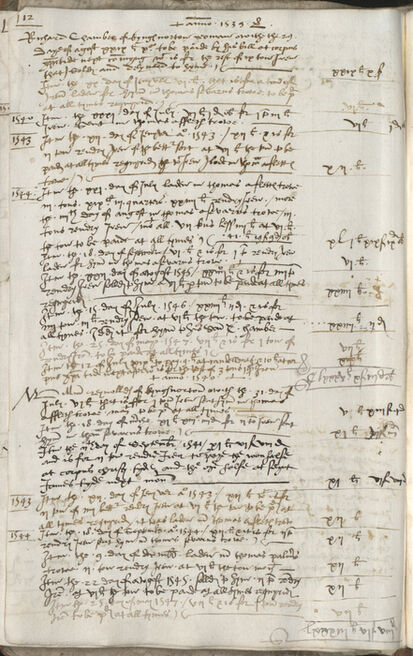
This is a page in the ledger of John Smyth, a Bristol merchant, recording all his trading transactions. One entry reads:
'...1540...the 18th day of Marche £11 13s 4d for 2 ton iren sent hym in Thomas Sevarns trowe.'
which he records a payment of over £11 to Thomas Sevarn in return for carrying two tons of iron in his trow.
'...merchants of the town... loaded...corn into vessels called 'trowes', but while the said vessels were coming down the King's river of Severn, certain malefactors... seized them...and took away the corn.'
Calendar of Patent Rolls 13 May 1429.
A trow is a type of flat-bottomed sailing barge which was popular with Bristol merchants for over 500 years. They were ideal for loading and offloading cargo, whatever the state of the tide, but they were slow and easy to rob.
Trows could travel as far as Gloucester, Chepstow and further inland to Worcester, Birmingham and the north of England. They fell out of use in the early 1900s because they were unable to compete with newer, faster forms of transport such as trains, steam tugs and lorries.